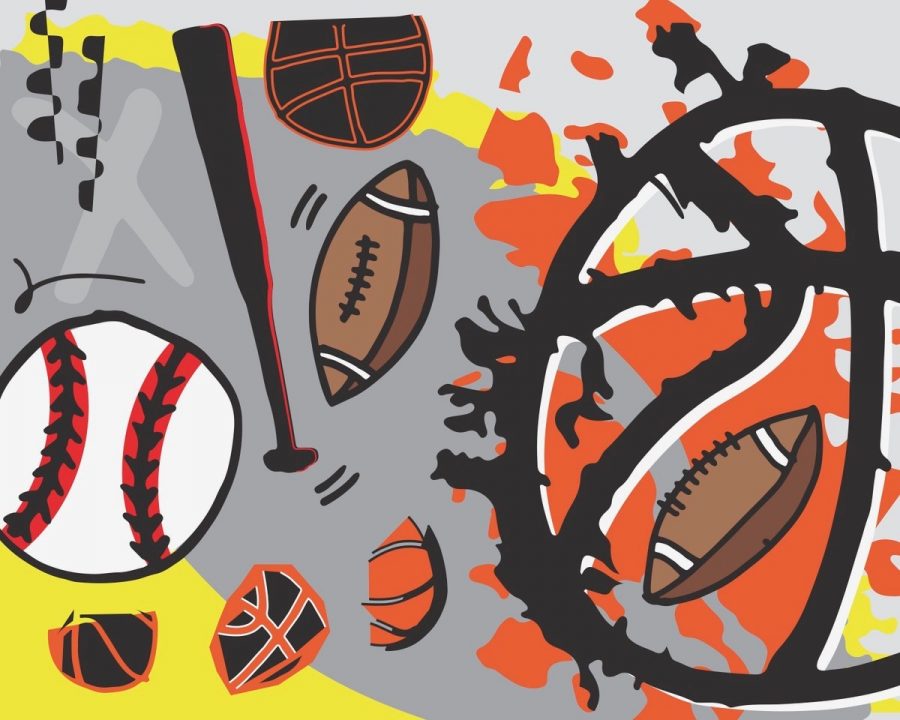Rally Cap
May 28, 2020
Through our erratic walks of life, we are confronted with obstacles that result in high levels of stress. It is hard for us, as human beings, to undergo this pressure on our own, especially for long periods of time. We end up looking for reassurance in things other than ourselves. Some go to religion for saving, while others may look to a certain object for comfort. It is the idea of having something to fall back on in times of great need. In sports, athletes tend to do the same. Whether it is a simple training or a crucial game, athletes rely on their superstitions to help them succeed.
In sports, superstitions are practiced all around the world and are unique to the individual players. These rituals are fairly common and are believed to have a long-lasting effect on players during their event. Junior Kahia Vaifoou has a specific pattern before any soccer event; she says, “I honestly do believe my athletic superstition has an effect on my performance, because it is all about mindset and how you sort of let your superstition play a part in your performance.” Vaifoou’s superstitions include playing music while she gets ready and a specific order in which she puts her uniform on, starting with her spandex, sports bra, shorts, jersey, and then ending with her socks. Vaifoou says she has to end with “brushing [her] teeth, no matter what time in the day or when the practice or game is.” Sophomore Nick Imler also believes that his athletic superstitions help his overall performance, saying, “I always wear two bracelets, one on my right wrist, another on the left. I have been doing this since I first started playing baseball with the same two bracelets.” Imler recalls times where he forgot to wear his two bracelets and had a bad performance. Imler says, “Whenever I remember to wear them, it gives me confidence and helps me when I am hitting or in the field.” Freshman Mackenzie Lee and sophomore Maclaren Crow both have to eat something before their event. Lee says, “I chew gum before every game” and “I eat butter noodles before every game.” Crow says, “I have to eat oatmeal before every game.” All of these athletes have developed ways to comfort themselves before competitions, and all of which are very personal and specific to the person. I myself am an athlete, and know what it feels like if you do not perfectly carry out your routine. Instead of focusing on the important things, like that training or game, I will instead focus on how I did not tie my shoe properly, or did not crack all of my fingers. In an article by Bleacher Report, author Amber Lee says, “Some are unique celebrations rooted deep in a team’s legend.”
Not only do teenagers have athletic superstition, professional athletes do as well, and for some, rituals have been the very reason for their fame. According to an article by The Sportster, author Jay Spring introduces Bruce Gardner, a former National Hockey League forward. Gardner had an average career but became well known for “his odd pre-game stick ritual.” During cold streaks, “Gardiner dunked the blade of his hockey stick in the locker room toilet before every game. More well-known athletes like Michael Jordan and Serena Williams, due to their crazy superstitions, have gotten themselves ranked in almost all the “most superstitious athletes” lists. In an article written by Ryan Murphy for Men’s Journal, Murphy rates the ten most superstitious athletes, ranking Jordan as tenth and Williams as seventh. Murphy says, “the five-time MVP wore his University of North Carolina shorts under his uniform in every game. Jordan led UNC to the NCAA Championships in 1982 and believed the mesh marvels brought him luck.” Murphy later goes on to explain Williams many superstitions, “these quirks include bringing her shower sandals to the court, tying her shoelaces a specific way and bouncing the ball five times before her first serve and twice before her second.” Williams will also wear the same pair of socks during a tournament. These professional athletes blame major losses on not following their routine perfectly.
These distinct superstitions tend to be generated by accident. According to Elizabeth Quinn in an article for verywellfit, “Superstition is generally something that is initially developed in hindsight, almost by accident and then required in future events.” If something odd happened before an event, like the player received a gift or got a haircut, and the player had an exceptional performance, they want to try and repeat what they did that day for the same results. Quinn also says, “A superstition arises when an athlete has a particularly good (or bad) performance and then tries to establish “cause and effect” by reviewing the facts of the day.”
Whether or not these quirky superstitions are the reason for fame or simply just a waste of time, it is the idea that we can put our trust in something silly, yet still feel protected.




